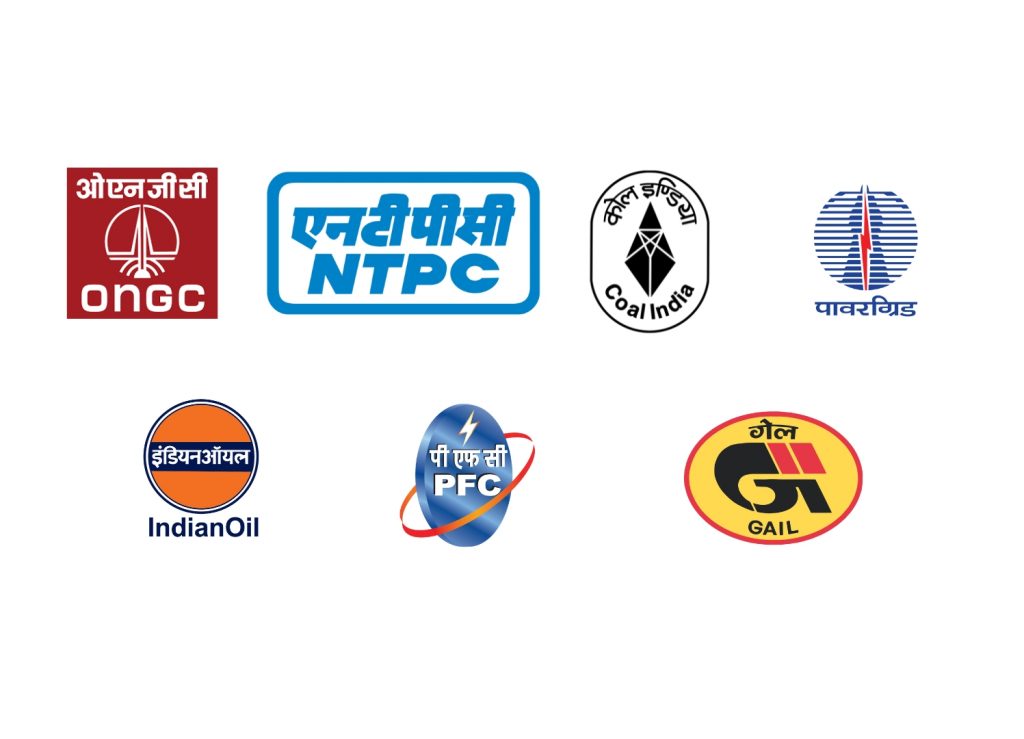| Type | Description | Contributor | Date |
|---|---|---|---|
| Post created | Pocketful Team | Aug-26-24 | |
| Add new links | Nisha | Feb-27-25 | |
| Add share price | Nisha | Feb-28-25 | |
| Add share price | Nisha | Feb-28-25 |

- Blog
- list of maharatna companies in india
List of Maharatna Companies in India 2025

Central public sector enterprises are crucial to the development of the nation’s economy as they operate in various sectors of strategic importance. The main aim of these companies is to achieve a balance between public welfare and industrial progress. But do you know some companies are granted a special status known as the “Maharatna”?
In this blog, we will discuss the significance of “Maharatna” status, the criteria for earning a Maharatna status, and an overview of the top Maharatna companies.
What is a Maharatna Company?
Central public sector enterprises (CPSEs) are those companies in which the direct holding of the Government of India or other CPSEs is 51% or more. Some CPSEs are of such strategic importance that the government of India started granting them Maharatna status, which gives these companies more autonomy and authority than the other CPSEs. These companies have more freedom to select projects for investment and can invest up to 15% of their net worth in any project without the government’s permission. The meaning of Maharatna is a ‘great jewel,’ and, indeed, these companies are shining jewels among the Indian CPSEs.
A company must satisfy the following criteria to become a Maharatna company:
- The company should have a Navratna status.
- The company should be listed on the Indian stock exchange with minimum prescribed public shareholding under the SEBI regulations.
- An average annual turnover of more than INR 25,000 crores during the last three years.
- An average annual net worth of more than INR 15,000 crores during the last three years.
- An average annual net profit after tax of more than INR 5,000 crores during the last three years.
- The company should have a significant global presence and international operations.
There are 13 Maharatna companies in India, and in this blog, we will discuss the top 7 Maharatna companies based on market capitalization.
Top Maharatna Companies in India Based on Market Capitalization

The top Maharatna stocks in 2025 are:
| S.No. | Maharatna Company |
|---|---|
| 1 | Oil & Natural Gas Corporation Ltd. |
| 2 | NTPC Ltd. |
| 3 | Coal India Ltd. |
| 4 | Power Grid Corporation of India Ltd. |
| 5 | Indian Oil Corporation Ltd. |
| 6 | Power Finance Corporation Ltd. |
| 7 | GAIL (India) Ltd. |
| Company | Market Capitalization (in INR Crores) | Current Market Price (in INR) | 52 Week High | 52 Week Low |
|---|---|---|---|---|
| Oil & Natural Gas Corporation Ltd. | 2,83,245 | 225 | 345 | 223 |
| NTPC Ltd. | 2,98,997 | 308 | 448 | 293 |
| Coal India Ltd. | 2,29,438 | 372 | 545 | 349 |
| Power Grid Corporation of India Ltd. | 2,34,189 | 252 | 366 | 251 |
| Indian Oil Corporation Ltd. | 1,61,900 | 115 | 186 | 114 |
| Power Finance Corporation Ltd. | 1,20,058 | 364 | 580 | 352 |
| GAIL (India) Ltd. | 1,01,520 | 154 | 246 | 154 |
Read Also: Top Navratna Companies list in India
Overview of the Maharatna Companies
A brief overview of Maharatna companies is given below:
1. Oil & Natural Gas Corporation Ltd.
Oil & Natural Gas Corporation Ltd. (ONGC) was established in 1956 and is the largest government-owned oil and gas explorer. It accounts for 70% of the domestic crude oil production and 84% of the domestic natural gas production. The company operates in 26 sedimentary basins and a network of pipelines that runs 11,000 kilometers. It has a subsidiary named ONGC Videsh, which has projects in 15 countries. In 2010, ONGC was granted the Maharatna status by the Government of India. The company’s headquarters is in New Delhi.
2. NTPC Ltd.
NTPC Ltd. is an Indian central public sector enterprise that generates and distributes electricity to state electricity boards in India. It was formerly known as National Thermal Power Corporation and was established in 1975. The company has an installed capacity of 76,134 MW through owned, subsidiary, and joint venture stations. The company has been trying to reduce its carbon footprint by generating electricity through renewable energy sources. NTPC has a total installed renewable energy capacity of 3 GW and aims to produce 50% of its electricity using renewable energy sources by 2032. NTPC was given the Maharatna status in 2010. The company’s headquarters is in New Delhi.
3. Coal India Ltd.
Coal India is the largest government-owned coal producer in the world. Coal India was established in 1975 and is under the Ministry of Coal, The Government of India. The company accounts for 82% of the total domestic coal production. CIL is a major player in the nation’s energy sector. It operates 313 mines and produced 773.65 million tonnes of coal during 2023-24. It has seven wholly owned subsidiaries in India and a foreign subsidiary named Coal India Africana Limitada (CIAL) in Mozambique. The company received the status of a Maharatna company in 2011. The company’s headquarters is in Kolkata.
4. Power Grid Corporation of India Ltd.
Power Grid Corporation of India is under the Ministry of Power, Government of India. The company was established in 1989 and is responsible for the transmission of bulk power across the country. The company was formerly known as the “National Power Transmission Corporation Ltd.” and is responsible for operating and maintaining 90% of the country’s power transmission systems. The company took over assets from NTPC, NHPC, NEEPCO, NLC, and others to start operations in 1993. The company was granted Mini-Ratna status in 1998, Navratna status in 2008, and Maharatna status in 2019. The company’s headquarters is in Gurugram.
5. Indian Oil Corporation Ltd.
The business was established in 1959 as Indian Oil Company Ltd. Indian Oil Corporation Ltd. was established due to a merger between Indian Oil Company Limited and Indian Refineries Limited in 1964. They established refineries in Gujarat, Barauni, Guwahati, etc., to grow their business and refine 31.44% of the total oil refined in India. Indian Oil’s LPG brand, “Indane,” is crucial in supplying LPG cylinders to more than 150 million households. The company has been aware of its carbon footprint and has launched a number of initiatives such as hydrogen Mobility, Electric Mobility, Solar Cooktop, etc. Its main office is located in New Delhi.
6. Power Finance Corporation Ltd.
The Power Finance Corporation Limited was established in 1986 and is under the administrative control of the Ministry of Power. The company gives financial support not only to projects related to power generation but also to transmission and distribution projects. The company is of strategic importance in India’s power infrastructure development. The company has launched the Green Bond Framework to develop financial instruments to finance green projects. In 2021, the company received the Maharatna status. The company’s headquarters is in New Delhi.
7. GAIL (India) Ltd.
Gas Authority of India Limited, or GAIL, was established in 1984 as a central public sector undertaking under the Ministry of Petroleum and Natural Gas. The company’s first project was the construction, operation, and maintenance of the Hazira-Vijaipur-Jagdishpur (HVJ) pipeline. It is primarily involved in the production and distribution of natural gas and operates 13,722 km of natural gas pipeline network. The company also has operations in the production of solar and wind power. The company was awarded the Maharatna status in 2013. Its headquarters is located in New Delhi.
Performance of the Maharatna Companies
| Company | 1-Year Returns | 3-Year Returns | 5-Year Returns |
|---|---|---|---|
| Oil & Natural Gas Corporation Ltd. | -16.26% | 40.53% | 150.39% |
| NTPC Ltd. | -7.91% | 141.22% | 191.65% |
| Coal India Ltd. | -1518% | 129.15% | 117.52% |
| Power Grid Corporation of India Ltd. | -13.65% | 69.97% | 143.72% |
| Indian Oil Corporation Ltd. | -33.60% | 52.83% | 65.84% |
| Power Finance Corporation Ltd. | -9.16% | 322.05% | 306.47% |
| GAIL (India) Ltd. | -13.96% | 73.13% | 127.35% |
Key Performance Indicators
| Company | Net Profit Margin (in %) | ROCE (in %) | Debt to Equity Ratio | P/E Ratio | P/B Ratio |
|---|---|---|---|---|---|
| Oil & Natural Gas Corporation Ltd. | 8.50 | 15.43 | 0.36 | 9.27 | 1.96 |
| NTPC Ltd. | 11.03 | 9.93 | 1.46 | 18.20 | 2.80 |
| Coal India Ltd. | 25.95 | 27.89 | 0.08 | 9.08 | 7.58 |
| Power Grid Corporation of India Ltd. | 34.01 | 13.46 | 1.42 | 19.92 | 3.35 |
| Indian Oil Corporation Ltd. | 5.36 | 23.90 | 0.67 | 7.93 | 1.81 |
| Power Finance Corporation Ltd. | 29.04 | 67.44 | 8.52 | 8.20 | 1.41 |
| GAIL (India) Ltd. | 6.17 | 11.28 | 0.24 | 13.36 | 1.58 |
Read Also: Miniratna Companies in India
Conclusion
Maharatna companies in India are vital to economic growth and provide employment to a huge workforce. These companies operate in various sectors ranging from energy, infrastructure, finance, etc. These companies have earned the Maharatna status by meeting all the criteria related to consistent profitability, annual turnover, annual net worth, etc. Meeting these parameters makes these companies a good investment opportunity for an investor. However, it is advised to consult a financial advisor before investing.
Frequently Asked Questions (FAQs)
How many Maharatna companies are there in India?
There are a total of 13 Maharatna companies in India. The list includes ONGC, NTPC, Coal India Ltd., Power Grid Corporation of India Ltd., IOCL, etc.
What are the benefits of being a Maharatna company?
A Maharatna company has more autonomy and authority in selecting projects for investment and can invest up to 15% of its net worth without the government’s approval.
Should a company be listed on the stock exchange to become a Maharatna company?
Yes, a company must be listed on the Indian stock exchange and must have a minimum prescribed public shareholding under the SEBI regulations.
Which company was the first to earn a Maharatna status?
Oil and Natural Gas Corporation Ltd. (ONGC) was the first company to get a Maharatna status on 24 December 2010.
What is a central public sector enterprise (CPSE)?
Central public sector enterprises (CPSEs) are those companies in which the direct holding of the Government of India or other CPSEs is 51% or more.
Disclaimer
The securities, funds, and strategies discussed in this blog are provided for informational purposes only. They do not represent endorsements or recommendations. Investors should conduct their own research and seek professional advice before making any investment decisions.